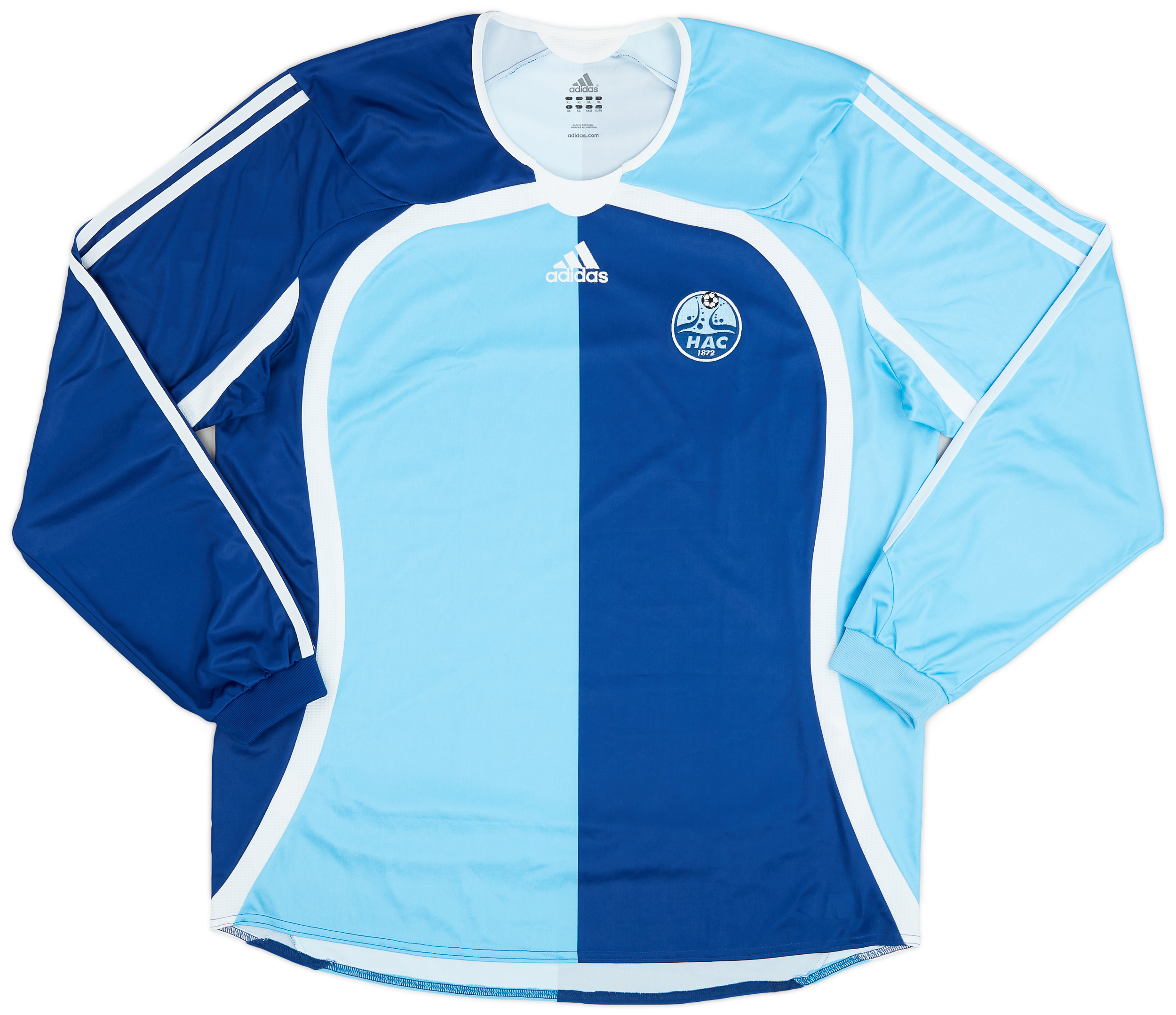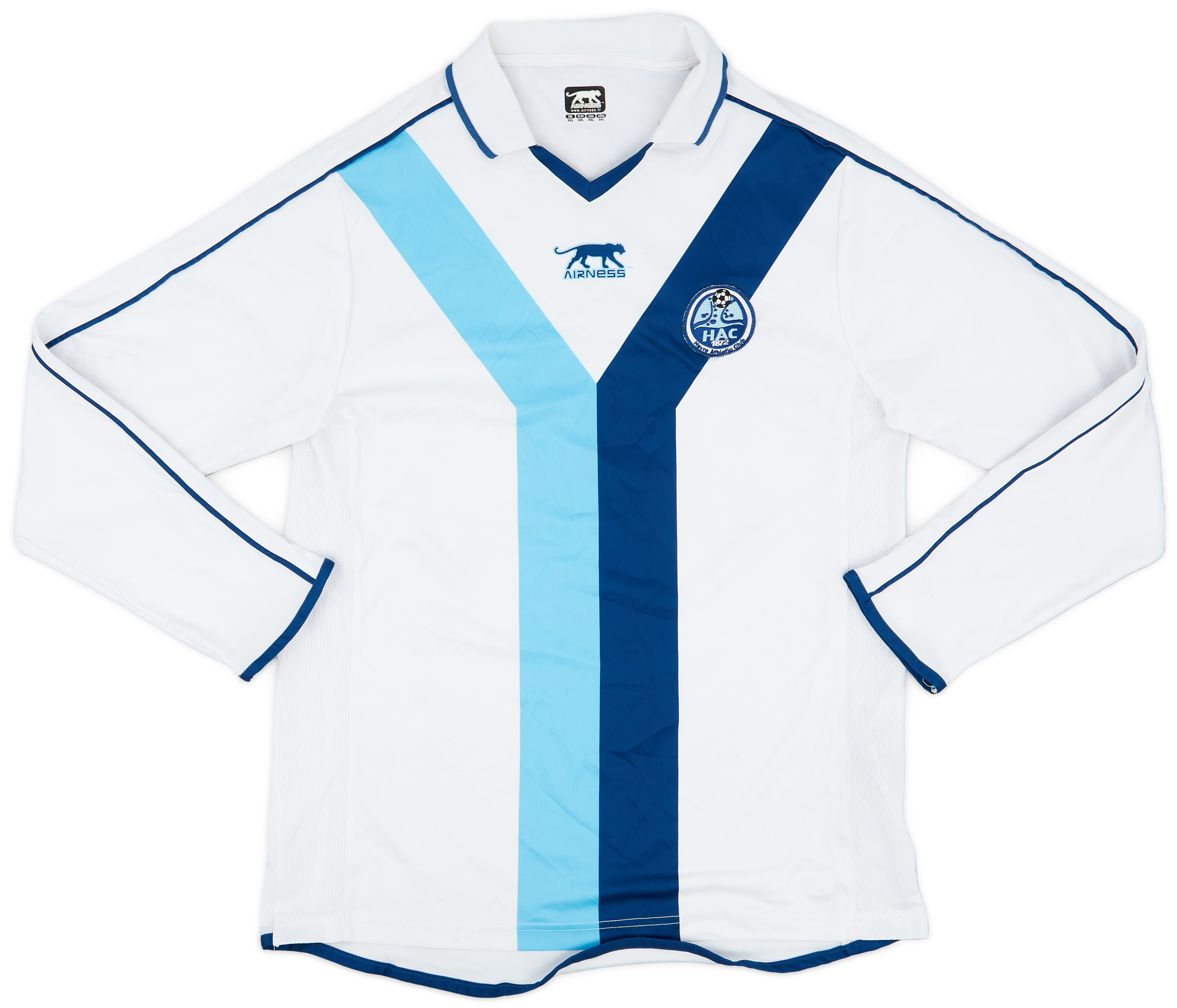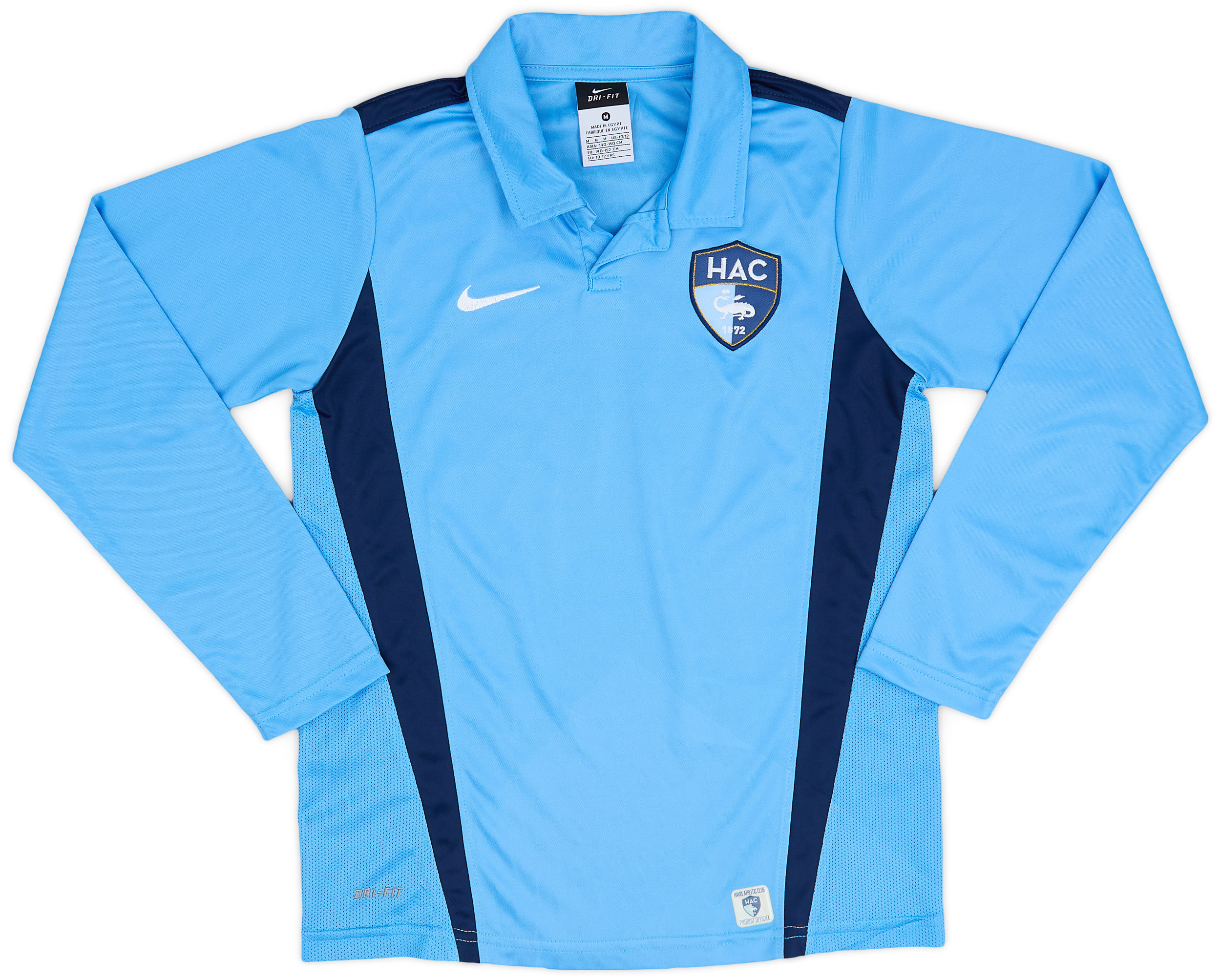Le Havre
Introduction The football club Le Havre Athletic Club, commonly known as Le Havre or simply HAC, is a professional football team based in Le Havre, Normandy, France. Founded in 1872, Le Havre is one of the oldest football clubs in the country and has a rich history steeped in tradition and local pride. Known for […]
2006-08 Le Havre Home L/S Shirt - 9/10 - (XL)
94.99£ - ca: €112
2010-11 Le Havre Away L/S Shirt - 8/10 - (XXL)
70.99£ - ca: €84
2009-10 Le Havre Away L/S Shirt - 6/10 - (M)
58.99£ - ca: €70
2012-13 Le Havre Home L/S Shirt - 9/10 - (M.Boys)
29.99£ - ca: €35
Introduction
The football club Le Havre Athletic Club, commonly known as Le Havre or simply HAC, is a professional football team based in Le Havre, Normandy, France. Founded in 1872, Le Havre is one of the oldest football clubs in the country and has a rich history steeped in tradition and local pride. Known for their distinctive blue and white colors, the club has become a significant part of the community and has played a crucial role in shaping the culture of the sport in the region. As a club that has produced numerous talented players and consistently competed at various levels, Le Havre continues to be a vital institution in French football.
Club History
The origins of Le Havre can be traced back to the 19th century, when it was established in 1872 by a group of local sports enthusiasts. Initially focused on various athletic activities, the club quickly gravitated towards football, which was gaining popularity across Europe at the time. In 1894, Le Havre officially adopted the name “Le Havre Athletic Club,” marking its commitment to the sport. Throughout its history, the club has undergone numerous transformations, including changes in leadership, stadiums, and even its competitive status.
Le Havre’s first major breakthrough came in the 1930s when they won their first Coupe de France in 1932. The club has experienced various highs and lows, including spells in Ligue 1 and Ligue 2. Notably, the 2008-2009 season saw Le Havre relegated from Ligue 1 after finishing 18th, yet they demonstrated resilience and the ability to bounce back, returning to the top tier multiple times over the years.
Achievements
Throughout its venerable history, Le Havre has amassed a number of notable achievements. The club has won the prestigious Coupe de France title twice, first in 1959 and again in 1965. While domestic honors are significant, Le Havre has also made a name for itself in league competitions, particularly in Ligue 2, where they have secured multiple titles and top finishes.
In addition to their cup triumphs, a standout achievement occurred in the 2008-2009 season when Le Havre finished as runners-up in Ligue 2, demonstrating their potential to compete at the highest levels of French football. The club has consistently been a breeding ground for young talent, often showcasing its capabilities in developing players who later go on to excel in larger clubs across Europe. This emphasis on youth academies has been a hallmark of Le Havre’s philosophy, especially praised for its successful academy that produced talents such as Paul Pogba and Riyad Mahrez.
Significant Players and Matches
Le Havre has had the privilege of featuring many notable players over the years, each of whom has left an indelible mark on the club’s history. One of the most celebrated individuals in the club’s timeline is former French international, Claude Makélélé, who began his professional career at Le Havre before going on to star for some of the biggest clubs in Europe. Another key figure is Benjamin Mendy, an accomplished left-back who emerged from Le Havre’s youth ranks before making his mark at clubs like Manchester City.
Throughout its history, certain matches have stood out, encapsulating the spirit and perseverance of the team. Notably, their thrilling encounter against Paris Saint-Germain in the Coupe de France in the 2016-2017 season caught the attention of many and demonstrated the club’s ability to compete against top-tier teams. Despite the competitive nature of French football, Le Havre continues to relish such challenges, both in cup fixtures and league encounters.
Cultural Impact
The impact of Le Havre goes beyond the pitch. As a local institution, the club embodies the spirit of the city and fosters a strong sense of community among its supporters. The “Ciel et Marine” (Sky and Navy) supporters create a passionate atmosphere that resonates through the stands during home matches at the Stade Océane, establishing a connection that extends to the heart of the region. This relationship between the club and its fans is foundational to the identity of Le Havre.
Le Havre’s dedication to nurturing local talent has also inspired a new generation of players in the area. The club’s commitment to its youth academy is evident, as many young athletes aspire not only to represent the team but to carry forward its legacy. This commitment to fostering homegrown talent has helped solidify Le Havre’s reputation as a club rooted in its community and focused on a sustainable future.
Conclusion
In summary, Le Havre Athletic Club is not just a football club; it is a cornerstone of the local identity and a significant player in the tapestry of French football history. From its deep-rooted history and numerous achievements to its impact on cultural and community life, Le Havre continues to exemplify the passion, dedication, and spirit of the sport. As the club looks to the future, it remains committed to its core values while also seeking to capture new successes on the field. For fans, players, and the broader footballing community, Le Havre is a club that inspires pride and hope, marking its place on both domestic and international stages.



